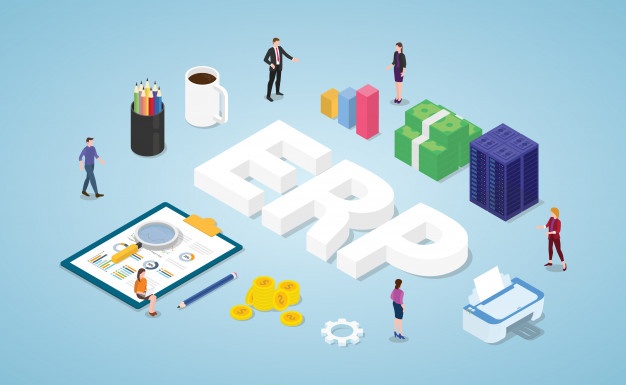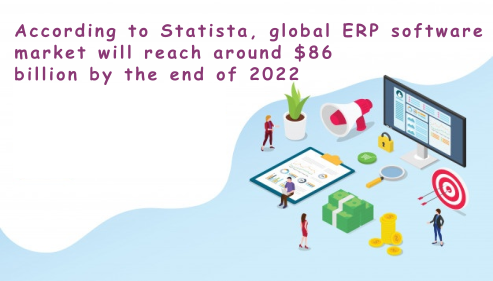- ERP is gaining huge momentum largely due to businesses transforming digital with the motive to integrate business processes across different departments including HR finance, marketing, production and distribution and support business intelligence
- Gartner reported an annual growth of 10% in FY 2018 with $35 billion in market value of ERP software market.
- According to Statista, global ERP software market will reach around $86 billion by the end of 2022
Technologies continue to evolve at a lightening quick rate that are changing the way businesses function. One of the most promising and growing application is enterprise resource planning which allows an organization to manage and integrate businesses activities in real time backed by technology.
Organizations are using ERP to increase efficiency of work, improve returns on investment and smoothen overall business operations. In this regard, companies are using it for strengthening supply chain process through tracking all the movements along the supply chain and distribution space.

LG Electronics is using integrated single HR platform from Oracle to oversee more than 80,000 employees operating in different countries which has resulted in key productivity changes, a better understanding of its human resources systems and substantial cost savings.
Similarly, Tyson foods is implementing an ERP system from SAP in its supply chain management to help company digitalize with an aim of streamlining data collection and strengthening sales, organizational and manufacturing functions. Likewise, L’Oréal is using supply chain ERP project from e2Open to accelerate supply chain growth while ensuring better collaboration with its stakeholders.
Though ERP provides business organizations with numerous benefits, it is not free from challenges for its succesful adaptation. Some of them include employees’ resistance to change to new system from traditional framework they have set, huge budget associated with implementation of ERP, lack of proper testing and employees with insufficient skills and knowledge to handle ERP application. Step by step, an ERP program is to be introduced through research phase with live trial and because it is so generic, it has to be configured for a specific business in order to manage the processes just as the business requires them.
In a nutshell, a successfully planned and managed ERP system can increase operational efficiency, facilitate better decision making through real time data collection and analysis improve customer satisfaction and productivity of employees if launched, implemented and updated properly as per business requirements and resources availability.

Who is providing ERP platform?
Some of the top companies selling ERP applications to business houses include Oracle, SAP, Sage, Microsoft, IQMs, Netsuite, Brightpear, Dolibarr and many more.






